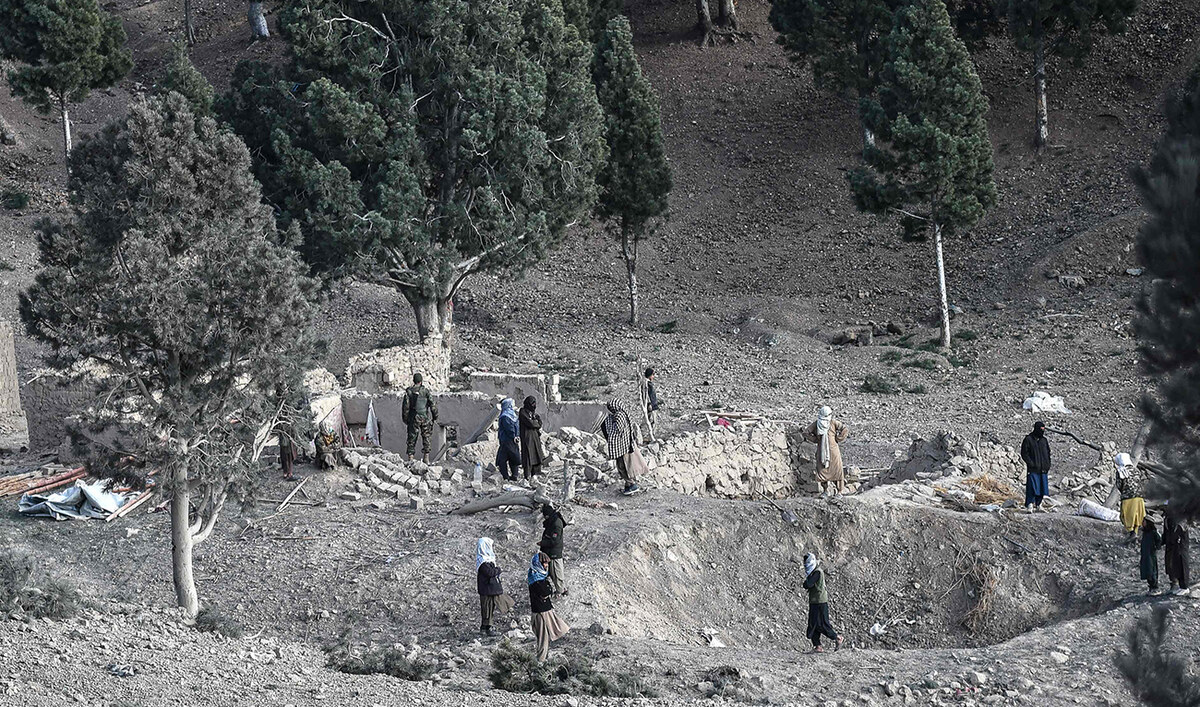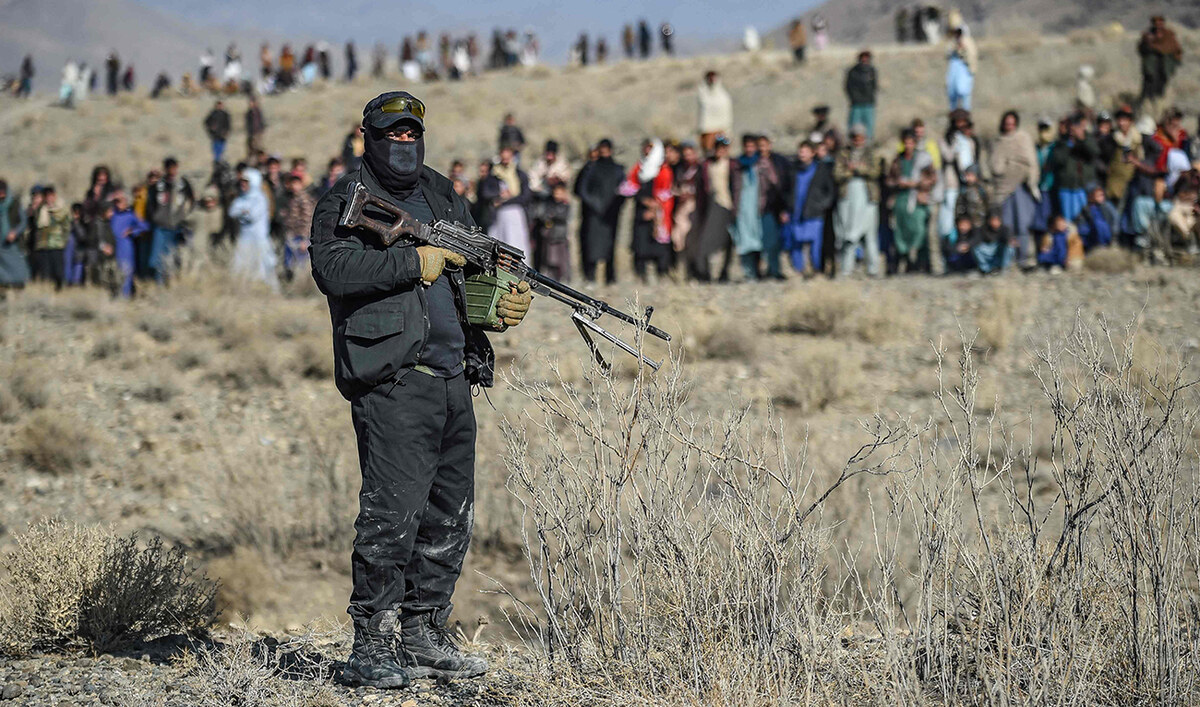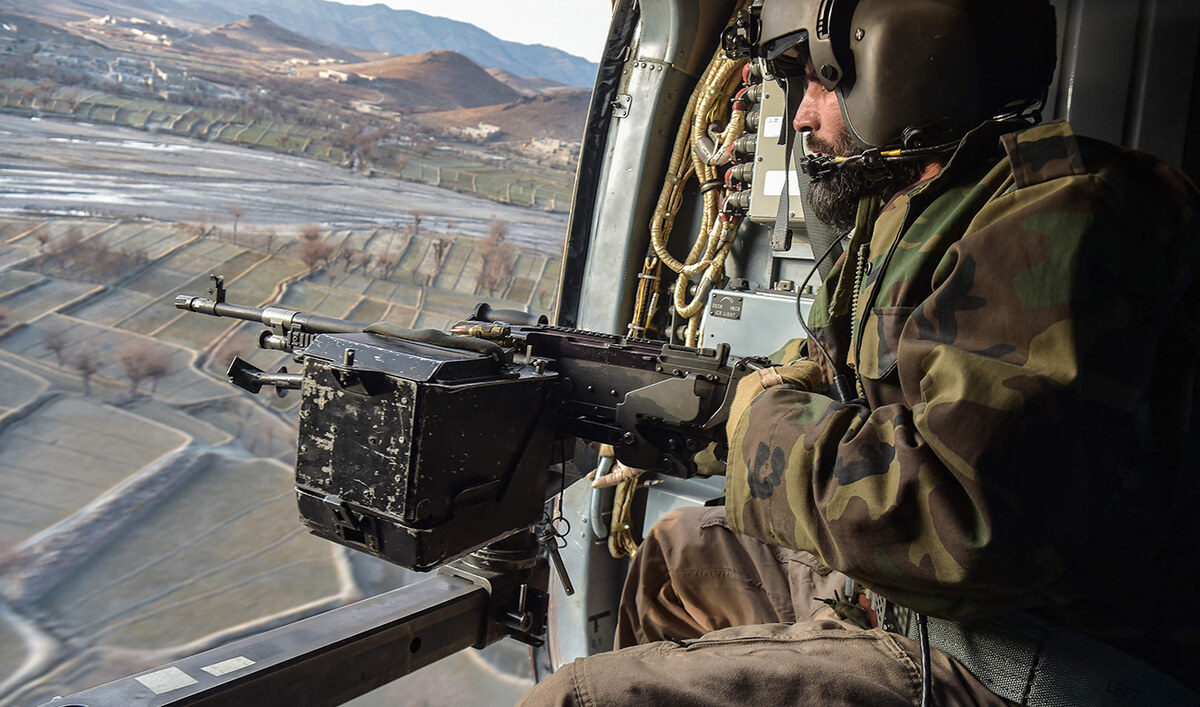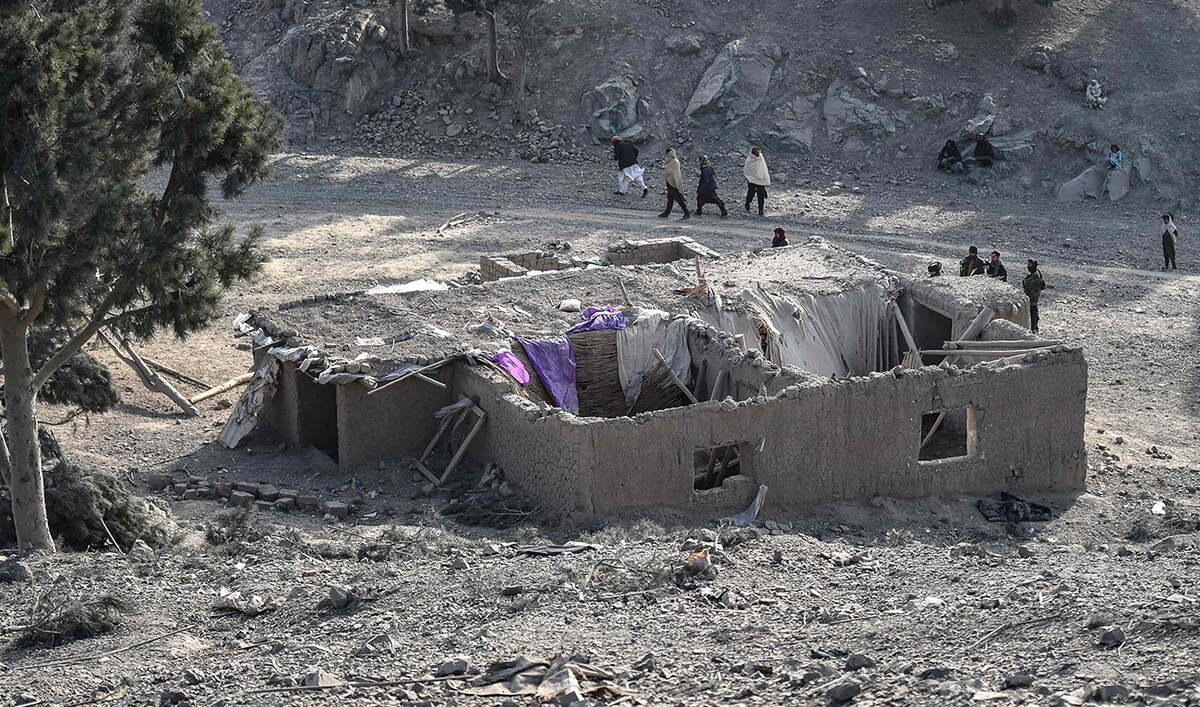ISLAMABAD: The Human Rights Watch (HRW) expressed worry on Tuesday over the use of “overboard” terrorism charges by the government against former prime minister Imran Khan’s supporters, a few days after his Pakistan Tehreek-e-Insaf (PTI) party supporters clashed with police in Pakistan’s capital.
Islamabad police on Sunday registered a terrorism case against more than a dozen members of Khan’s party for vandalism at the capital’s judicial complex. Clashes erupted on Saturday when the former prime minister arrived for a hearing in Islamabad in a case relating to the sale of state gifts while Khan was prime minister. Khan faces a slew of cases across the country, with charges against him ranging from murder to sedition, which carries the death penalty in Pakistan.
Punjab police and the caretaker provincial government have both accused Khan’s supporters of pelting stones and hurling petrol bombs at law enforcers. Khan denies the allegations and insists the Shehbaz Sharif-led ruling coalition government wants to kill him.
In its statement, the HRW urged Pakistan to “appropriately prosecute” any of the former prime minister’s supporters who have engaged in unlawful acts of violence, uphold the right to peaceful protest, and refrain from unlawful use of force.
“The use of Pakistan’s vague and overbroad anti-terrorism provisions against opposition protesters is very worrying,” Patricia Gossman, associate Asia director at Human Rights Watch, said in a statement. “If the authorities believe that Khan’s or his supporters’ actions have resulted in violence or constituted a real threat to public safety, they should be charged under the appropriate laws.”
Gossman stressed on the need for both sides to respect the rule of law and human rights and practice restraint. “It is vitally important for the police to respect the right to peaceful assembly while holding those responsible for unlawful violence to account,” she added.
Separately, Khan wrote to Pakistan’s chief justice on Monday and urged him to conduct an investigation into Saturday’s clash with law enforcers and the earlier police raid on his Lahore residence. According to a copy of the letter seen by Arab News, Khan stated that police attacked his party’s supporters when he had arrived at the Islamabad judicial complex “without any provocation.”
“I realized something was amiss and that it was not my arrest that was being planned but my assassination,” Khan wrote.
“In view of the continuing threats to my life and the assault on my home, I would request you to order a proper investigation into these events,” he added.
These actions have never happened before to anyone let alone a former Prime Minister and leader of the largest political party in Pakistan.”
On Monday night, PM Sharif chaired a meeting of the coalition government’s parties. In a press statement after meeteing, the government accused Khan’s party supporters of attacking law enforcers and vowed to take stern action against them.
“Attacks on officers and personnel of state institutions by violently trained gangs of banned organizations is very alarming,” the ruling Pakistan Muslim League-Nawaz (PML-N) said in a statement.
The police in Pakistan have used abusive measures in the escalating confrontation between police and Imran Khan’s supporters, Human Rights Watch said today.
They have charged protesters with batons and detained them under sweeping counter-terrorism laws. The authorities should appropriately prosecute any of the former prime minister’s supporters who have engaged in unlawful acts of violence, uphold the right to peaceful protest, and refrain from the unlawful use of force.
“The use of Pakistan’s vague and overbroad anti-terrorism provisions against opposition protesters is very worrying,” said Patricia Gossman, associate Asia director at Human Rights Watch. “If the authorities believe that Khan’s or his supporters’ actions have resulted in violence or constituted a real threat to public safety, they should be charged under the appropriate laws.”
All sides should display restraint and respect for human rights and the rule of law,” Gossman said. “It is vitally important for the police to respect the right to peaceful assembly while holding those responsible for unlawful violence to account.”




















